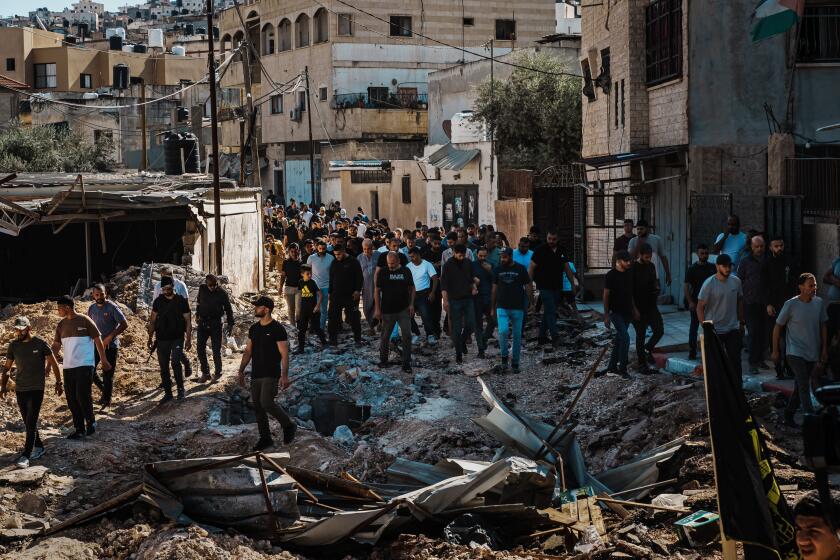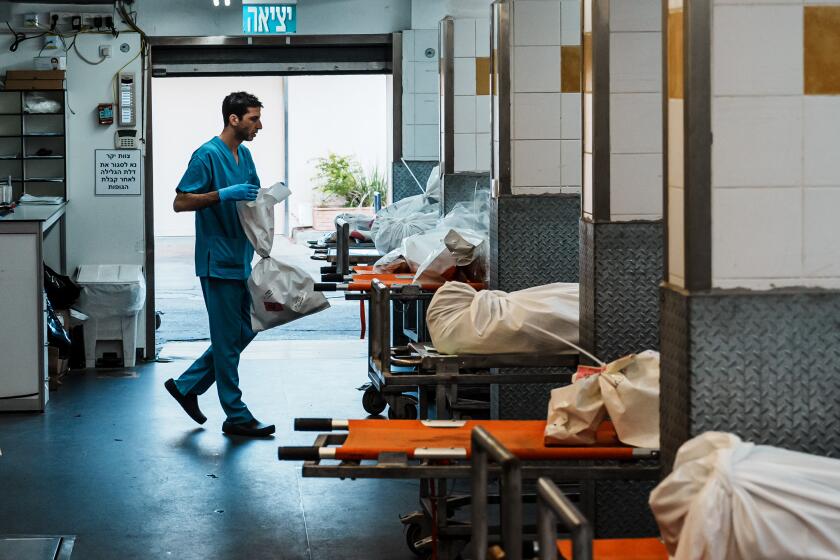‘I just want to run’: Mental health care yet another casualty of Gaza war

- Share via
DEIR AL BALAH, Gaza Strip — The war in Gaza is maiming minds as well as bodies.
A burgeoning mental health crisis in the tiny coastal enclave is vastly overshadowed by the scale of death and destruction caused by more than three months of Israeli bombardment. But many experts believe psychological damage may prove one of the war’s most lasting legacies.
More than 25,000 people have been killed in Gaza, according to Palestinian health officials. Most of the population of 2.3 million is displaced, the United Nations says. More than half of all Gaza’s structures — schools, homes, universities — are damaged or in ruins, according to satellite imagery.
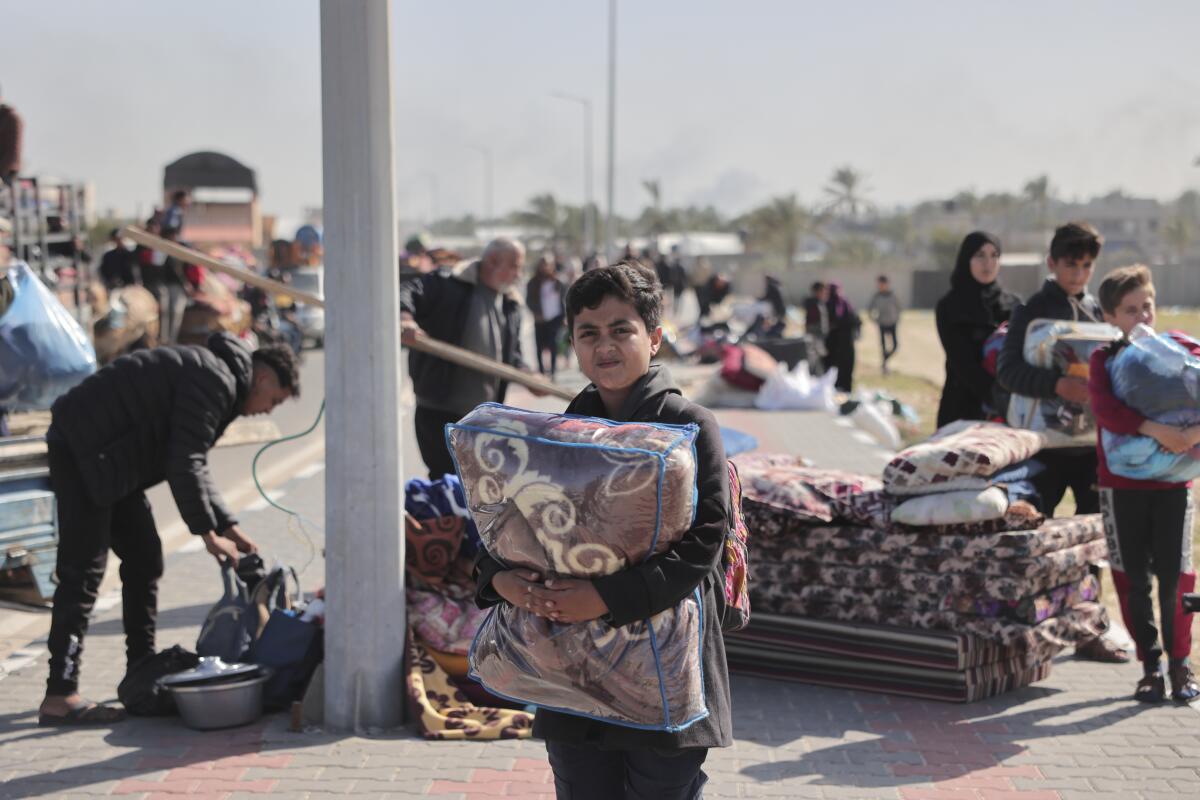
However, the full weight of long-term trauma, especially among the very young, will probably not be clear until after the fighting stops, say those at the center of Gaza’s decades-long struggle to build a system of mental health care.
“The psychological wounds will remain for a very long time after this catastrophe,” said Dr. Samah Jabr, the head of mental health services at the Palestinian Ministry of Health in Ramallah, the West Bank’s administrative capital. “And they will carry down through generations.”
There are so many children in Gaza whose entire families have been killed that hospitals classify them with the abbreviation “WCNSF” — for “wounded child, no surviving family.”
Palestinians in Jenin refugee camp, a center of West Bank resistance, say repeated Israeli raids appear intended to make their city as uninhabitable as Gaza.
Those around 10-year-old Dareen Anas Al Baya, hospitalized in Deir al Balah in central Gaza, encourage her to use colored pencils to express her feelings even when she does not feel able to speak to anyone.
“I draw every day,” said the girl, whose father and mother were killed in a bombing that left her with serious leg injuries but alive, together with one of her brothers. Dozens of other members of the girl’s immediate and extended family who were sheltering in the house together were also killed.
One of her uncles survived and was being treated in Turkey, medical staff said.
“I hope that maybe he can bring us to him,” Dareen said tentatively.
Even among children left physically unscathed in a war that has killed an estimated 12,000 of them and injured more than twice as many, the psychological effects are omnipresent, say those working on the ground.
“In every tent we inspect, we find children who compulsively suck their fingers, wet their beds, suffer from speech difficulties, lose their appetite, have nightmares, cannot sleep,” said Dr. Arafat Abu Mashayikh, head of the mental health department at Al Aqsa Martyrs Hospital in Deir al Balah.
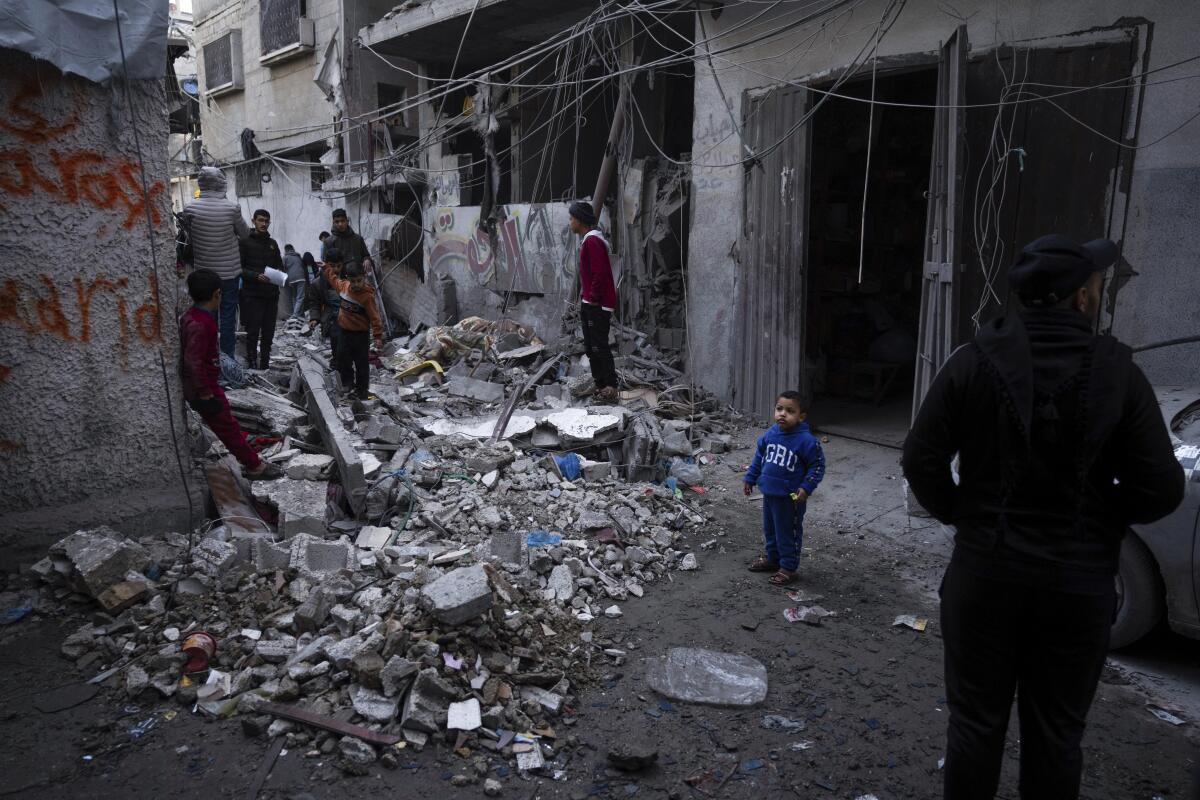
Adolescents are another vulnerable group, with the current war — one of several that young people in Gaza have already lived through — coming at a time when they are developing convictions and social identity.
“Because of this experience, their view of the world and themselves will be distorted,” said Jabr, the Palestinian mental health services director, who is also a clinical psychologist.
Adults too are suffering. Before the war, Gaza had a single in-patient psychiatric hospital, and it had only 40 beds. Bombardment knocked the facility out of commission early in the conflict, Jabr said, leaving families to care for relatives with severe mental health issues even as they move frantically from one locale to another trying to find safety.
Out of the six community mental health centers across Gaza that had distributed psychiatric medications, five were forced to close their doors within the war’s first weeks, health officials said. And telemedicine counseling appointments, a lifeline for those living in remote areas, quickly fell casualty to frequent communications blackouts.
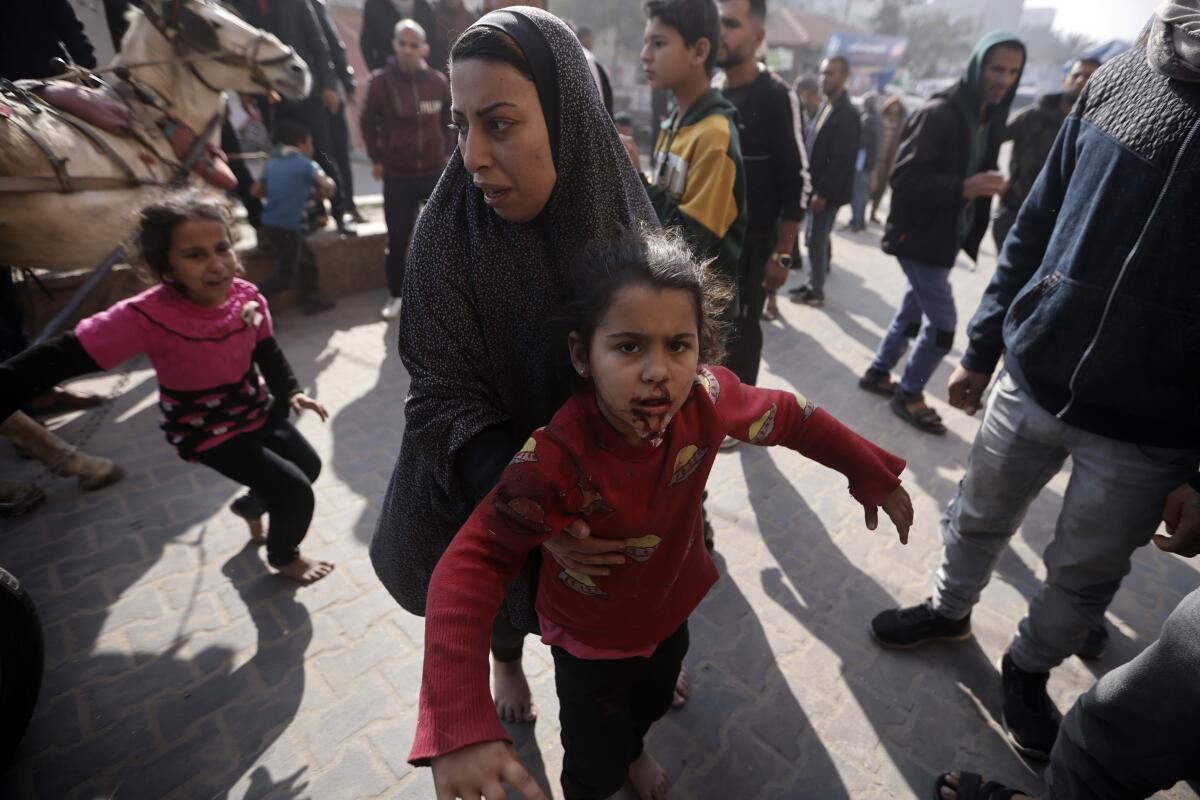
Before the war, years of efforts by mental health professionals and community outreach workers in the Palestinian territories had started to strip away some of the societal stigma associated with mental illness. Traditionally, even conditions like anxiety and depression left sufferers and those closest to them feeling isolated and ashamed, doctors said.
War has been a leveler in terms of attitudes about mental health, some practitioners said, because virtually everyone is finding it difficult to cope with their circumstances and there is more acceptance of mental struggles.
The Biden administration views the two-state solution — an independent Palestinian state alongside Israel — as the only way to stop generations of violence.
Still many people, especially parents, feel the need to hide their distress as best they can. A widowed mother of seven named Hanan, displaced and living in a tent in central Gaza, said she was terrified by the bombing but resolved not to let her children see that.
“I always acted as if I wasn’t scared — even if I screamed, I pretended I was laughing,” said Hanan, 48. After the family took shelter in a school, she sought to calm her daughters with made-up promises from a security official that they would be safe there. They soon had to flee again.
Sometimes, Hanan said, the pressure was too much to bear, and she would feign the need to visit her camp’s squalid toilets just to have a few moments away.
“I want to run — just leave the tent and run away,” she said. “I pretend I want to go to the bathroom, so as to walk outside at night.”
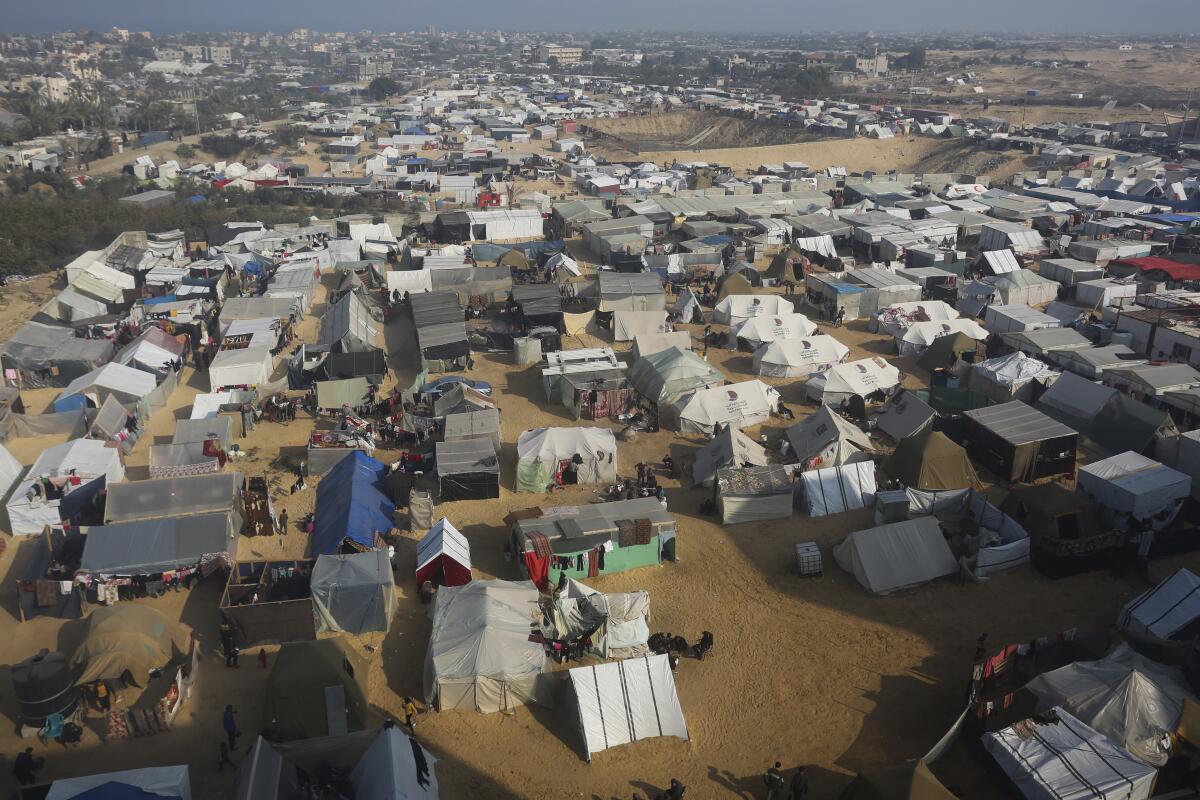
Living in constant fear poses its own dangers, health experts said, because it is common for decision-making ability to be impaired by extreme stress. In Gaza, getting through a single day requires ingenuity and planning — finding shelter, obtaining food, searching for clean water.
“In a war zone, ability to survive can be greatly impacted by the state of one’s mental health,” said Dr. Steve Sugden, a U.S. Army reserve colonel and psychiatrist who is an associate professor at the University of Utah. “For individuals in this state of mind, decisions are more reactionary, responding immediately to events as opposed to thinking things through.”
A forensic investigator in Tel Aviv works to reassemble remains of victims of Hamas militants, trying to understand the causes of death and the underlying cruelty.
In Gaza, the number of people able to provide care and comfort to those in mental distress is diminishing — because they too are traumatized. Against the backdrop of a general collapse of the medical system, such a loss can escape notice, but it increasingly is being felt as the war drags on.
“Many in Gaza have been trained to provide psychological ‘first aid’ — nurses, general practitioners, teachers,” said Jabr. “But now, really no one is left untouched by loss of loved ones, homes or property, so that helping capacity is being diminished.”
For many in Gaza, stoicism is the only way to get through, health professionals say. People might carry guilt for a lifetime after having to give a loved one up for dead under the rubble — but in the moment, it can feel that there is nothing to say.
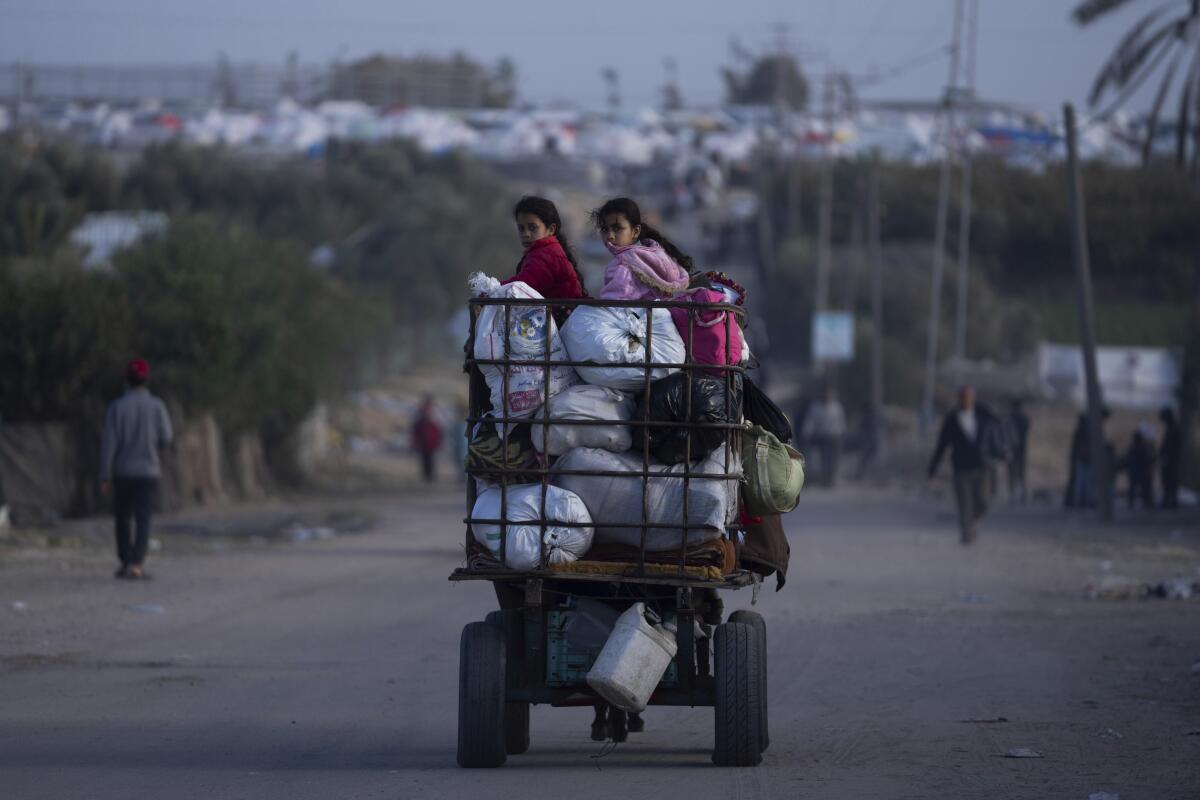
From Ramallah, Jabr maintains contact with colleagues in the mental health field as best she can. Sometimes she can offer a snippet of practical advice, but there is one scenario she finds particularly difficult to cope with.
“That’s when someone who I know has lost so much — their child has been killed, their home is destroyed — insists on asking me how I am doing, how I am holding up,” she said. “That’s what’s most unbearable.”
The Times’ special correspondent in Gaza cannot be named for security reasons. King, a staff writer, contributed to this report from Jerusalem.
More to Read
Sign up for Essential California
The most important California stories and recommendations in your inbox every morning.
You may occasionally receive promotional content from the Los Angeles Times.
